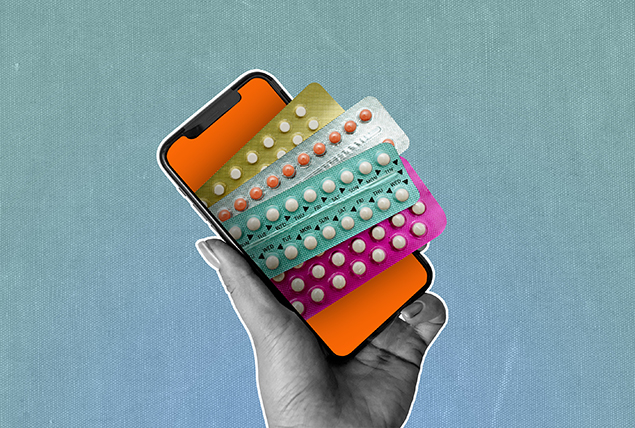Study: Social Media Influencers Spread Birth Control Misinformation

YouTube content often promotes misinformation or incomplete information about birth control, a new study found.
A study conducted by a team of University of Delaware researchers suggests YouTube social media influencers are more likely to share information about discontinuing birth control than promote safer sex or contraception.
"Results suggest that SMI [social media influencer] YouTube videos are primarily about the discontinuation of hormonal birth control and may provide inaccurate sexual health information," the study authors concluded.
The study, published in January 2023 in Health Communication, highlights the need for accurate sexual health education as more teenagers and young adults turn to social media for answers to their sexual health questions.
"Previous research suggests that SMIs have powerful persuasive effects on attitudes and behaviors," the study reported. "Thus, it is important to examine the ways in which sexual health information, such as birth control, is conveyed by SMIs."
Wading through YouTube vlogs posted from December 2019 to December 2021, the researchers conducted a content analysis of social media influencers who talk about their experiences using hormonal or nonhormonal birth control.
The study examined the characteristics of social media influencers and their "shared experiences pertaining to birth control."
For the study's purposes, social media influencers were categorized by their number of followers. Those with more than 1 million followers were seen as "super" influencers, while creators with 100,000 to 1 million followers were called "macro" influencers. The latter category made up 54 percent of the study's sample of YouTube vloggers.
Of the influencers who had used hormonal birth control, the study indicated about 74 percent had vlogged about stopping or planning to stop using it, opting instead for natural family planning and relying on a calendar or an app to map out a woman's most fertile days.
Natural family planning, while without pharmaceutical side effects, has a 24 percent failure rate, according to the Centers for Disease Control and Prevention (CDC).
Stopping hormonal birth control increases the likelihood of an unintended pregnancy at a time when many young women live in states that no longer allow access to abortion care.
The influencers' reasons for discontinuation of hormonal birth control included acne, mood swings and a decrease in sex drive.
The University of Delaware study authors suggested future research should explore the effects of influencer sexual health messaging on beliefs, attitudes and behaviors.
The team's research comes at a time when the number of formal sex education programs in the United States has declined nationwide, leaving a void that is increasingly filled with social media information—or misinformation.
While teen pregnancies have declined more than 70 percent over the past three decades, sexually transmitted infections (STIs)—particularly syphilis, chlamydia and gonorrhea—are on the rise across all age groups, highlighting the need for continued safer sex education.
Adolescents ages 15 to 24 account for nearly half of the 20 million new cases of STIs each year.


















